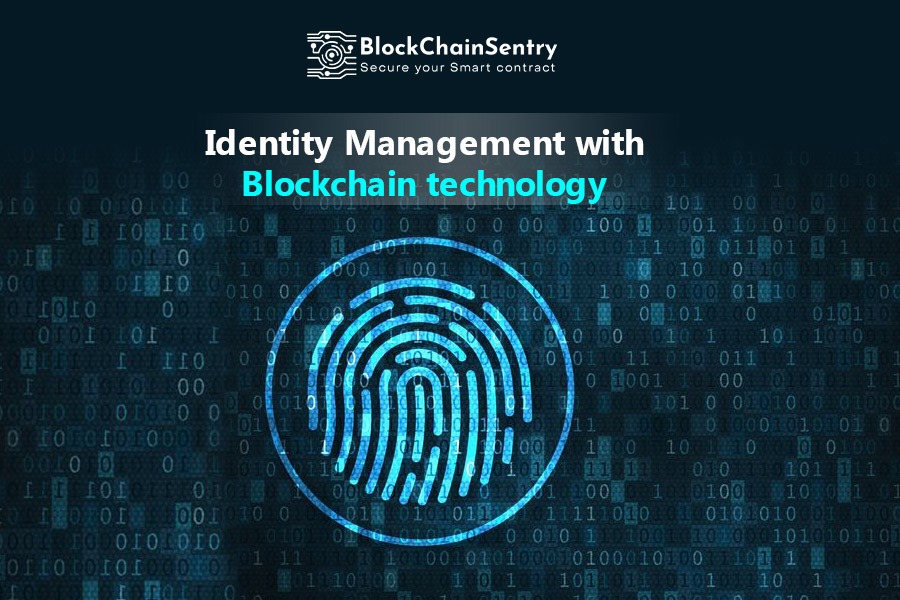Identity Management with Blockchain Technology

According to AARP, 42 million Americans may have fallen victim to identity fraud in 2021 alone. People know that their identity is unprotected throughout the internet, yet taking back control of that information is challenging.
Although blockchain technology is most frequently linked with cryptocurrency, use cases in identity management have shown the technology's potential to transform this industry entirely. Blockchain technology is uniquely positioned to change how we address issues like identity theft, KYC verification, and other problems because of its capacity to track, trace, store, and securely share data. In this blog post, we are discussing how blockchain technology can help with identity management.
Challenges in today's identity management
The current identity management system needs to be more trustworthy and safe. You are required to prove your identity at every turn using a variety of official documents, such as a passport, voter ID, or pan card etc. Sharing multiple IDs can result in data breaches and privacy issues. Everybody regularly utilizes identity documents kept in an unidentified location and shared with third parties without explicit permission. Identity documents are required for everything from loan applications to bank account openings, sim card purchases, and ticket reservations. Government institutions, banks, and credit agencies are the weakest link in the present identity management system.
How can Blockchain help with identity management?
Blockchain technology promises to improve identity management with its unique characteristics like
- It is a decentralized entity; a centralized authority is not necessary to manage the data.
- Consensus methods for modern cryptography aid in data security.
- Immutability helps in tamperproof data records.
- Smart contracts are unchangeable pieces of code that can uphold the terms and conditions of a contract with irrevocable results.
- Over a billion people remain outside traditional identification systems due to tedious identification documentation processes, costs, and access issues; Blockchain helps overcome these issues.
Blockchain projects that are changing identity management
Identity management systems built on the blockchain return control of users' personal data to them. Additionally, when data interaction with blockchain-like systems occurs for identity, it can reduce or remove redundant compliance stages, enhance end-user security, satisfy privacy standards, etc.
The following are some significant projects using blockchain technology to aid in identity management:
Civic
To create a solid and connected community, Civic helps DAO, Discord servers, or NFT projects use Civic Pass, an integrated permissioning solution. Civic secures data via the Blockchain. By Civic or other identity-verifying partners, this data is rigorously vetted before being confirmed and anchored to the Blockchain as unbreakable data. Civic tokens are the only medium of exchange for this data between the user and the person making the request (CVC).
Civic's data is all recorded on the Blockchain as a verifiable hash, making it simple for users and identity requesters to verify the information and stop identity theft.
Selfkey
SelfKey is another identity management solution built on the Blockchain. On the Blockchain, it enables people and businesses to own and manage their identities. It has its ERC20 tokens and is similar to the Civic initiative. SelfKey allows users to buy financial products, establish businesses, engage in verified token sales, acquire new citizenships or residences for investments, register on exchanges, and much more instantaneously.
SecureKey
Consumer access to internet services and applications is made simpler by SecureKey, a top identity and authentication provider. It is similar to Civic but constructed on IBM's Hyperledger blockchain platform. Canada uses this system to manage and verify the digital identities of its citizens, secured by blockchain technology.
Once a bank or other reputable organization has confirmed a person's identity, they can use that same identity proof to access new services elsewhere without having to go through the KYC procedure all over again. In this use case, no native tokens.
Wrapping Up
Blockchain is already playing a significant role in enhancing identity management, KYC procedures, and privacy in public and private organizations, as evident from its various use cases. As blockchain technology develops, new use cases will appear with even more disruptive potential by utilizing its built-in advantages, such as transparency, independent verification, and open access. The open and secure data sharing made possible by blockchain technology gives people control over their privacy and data.